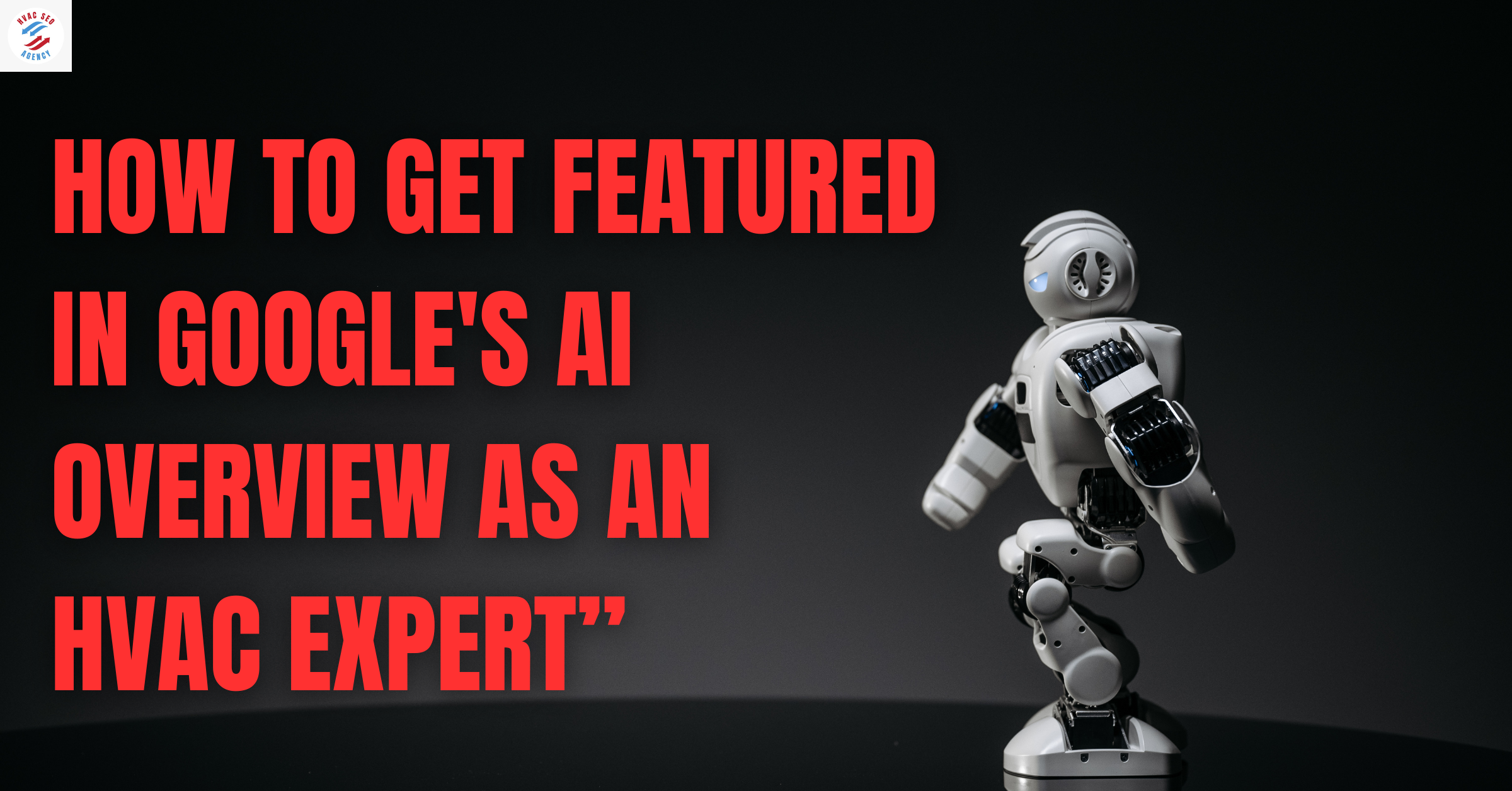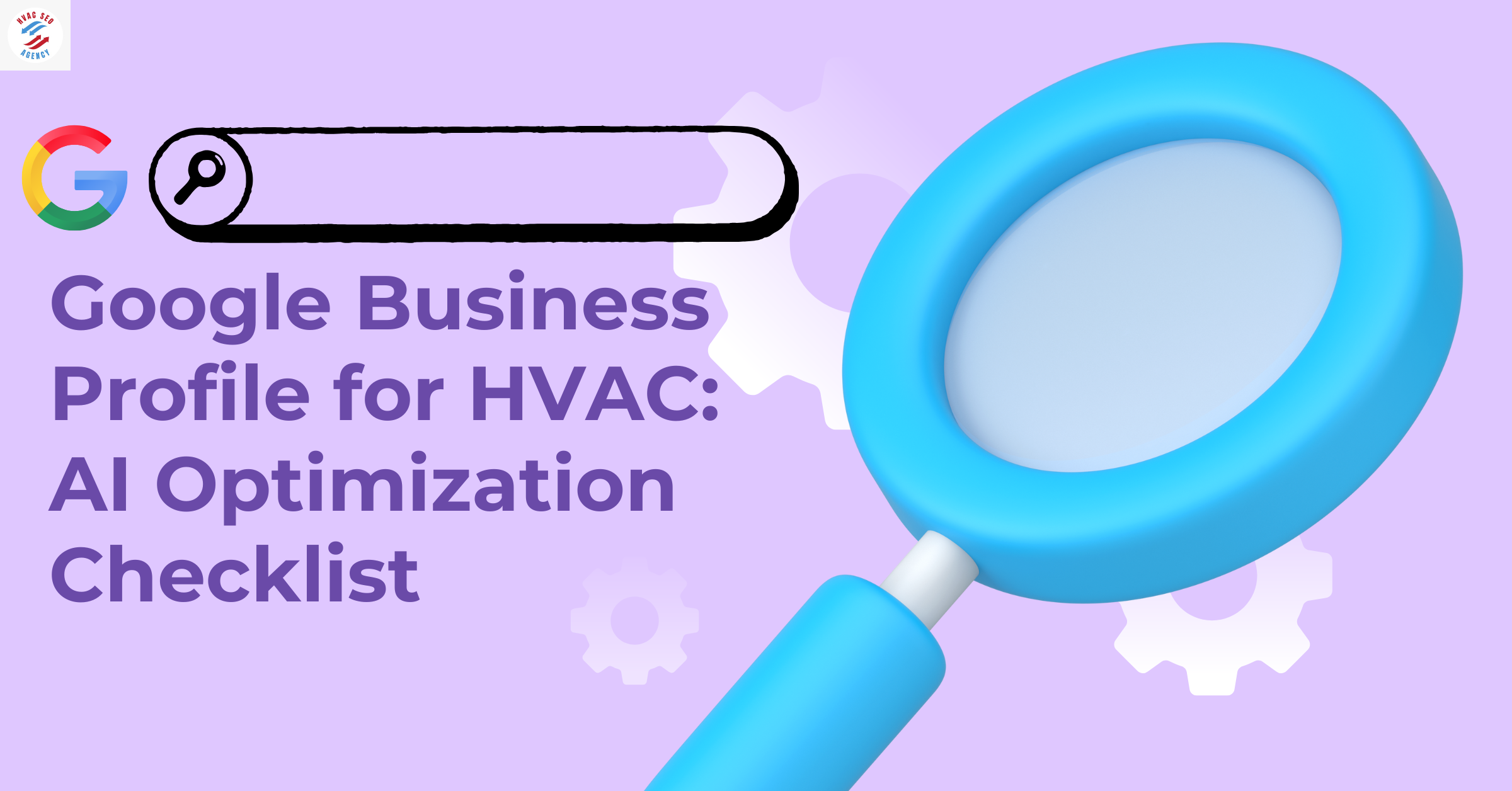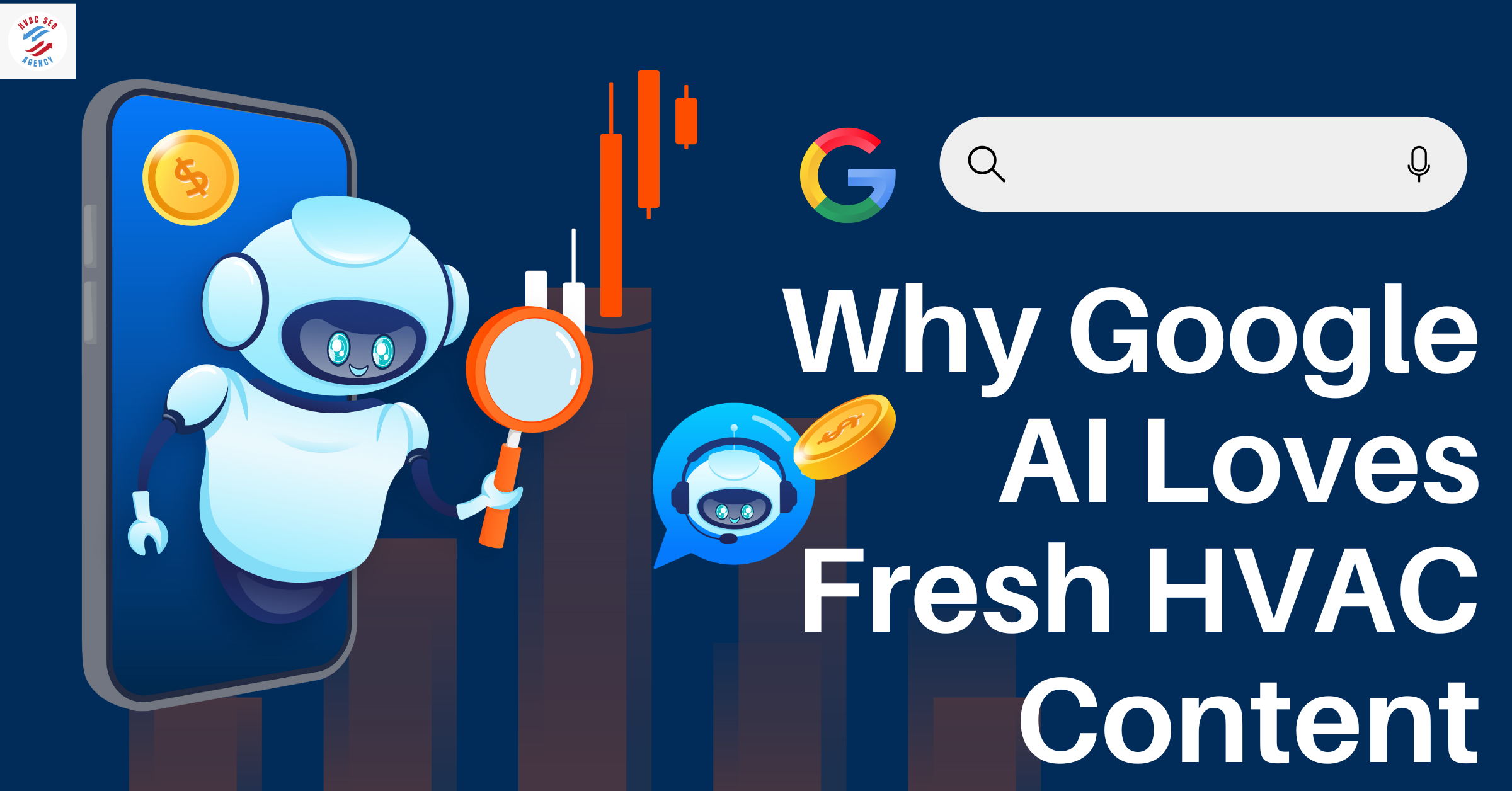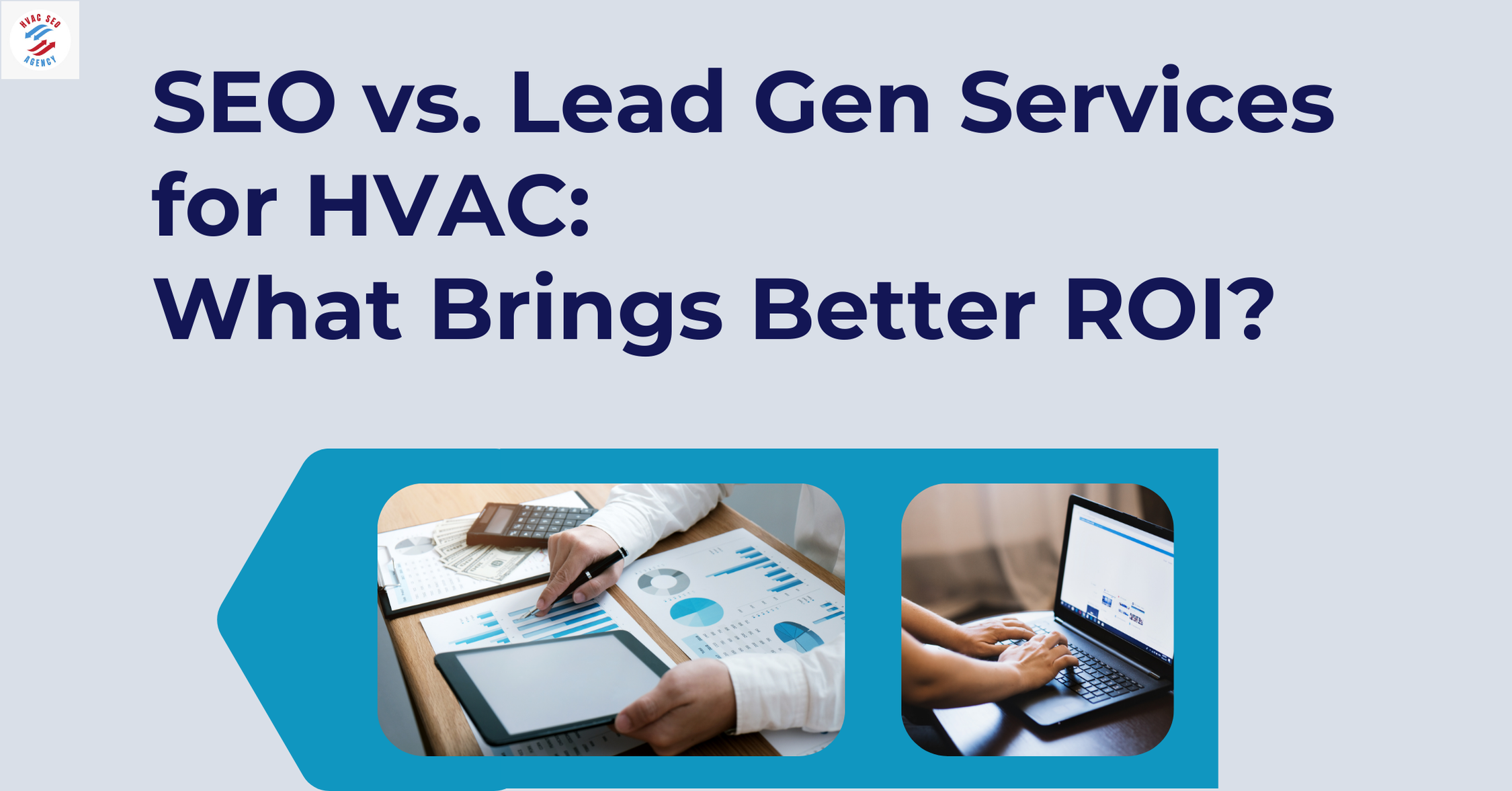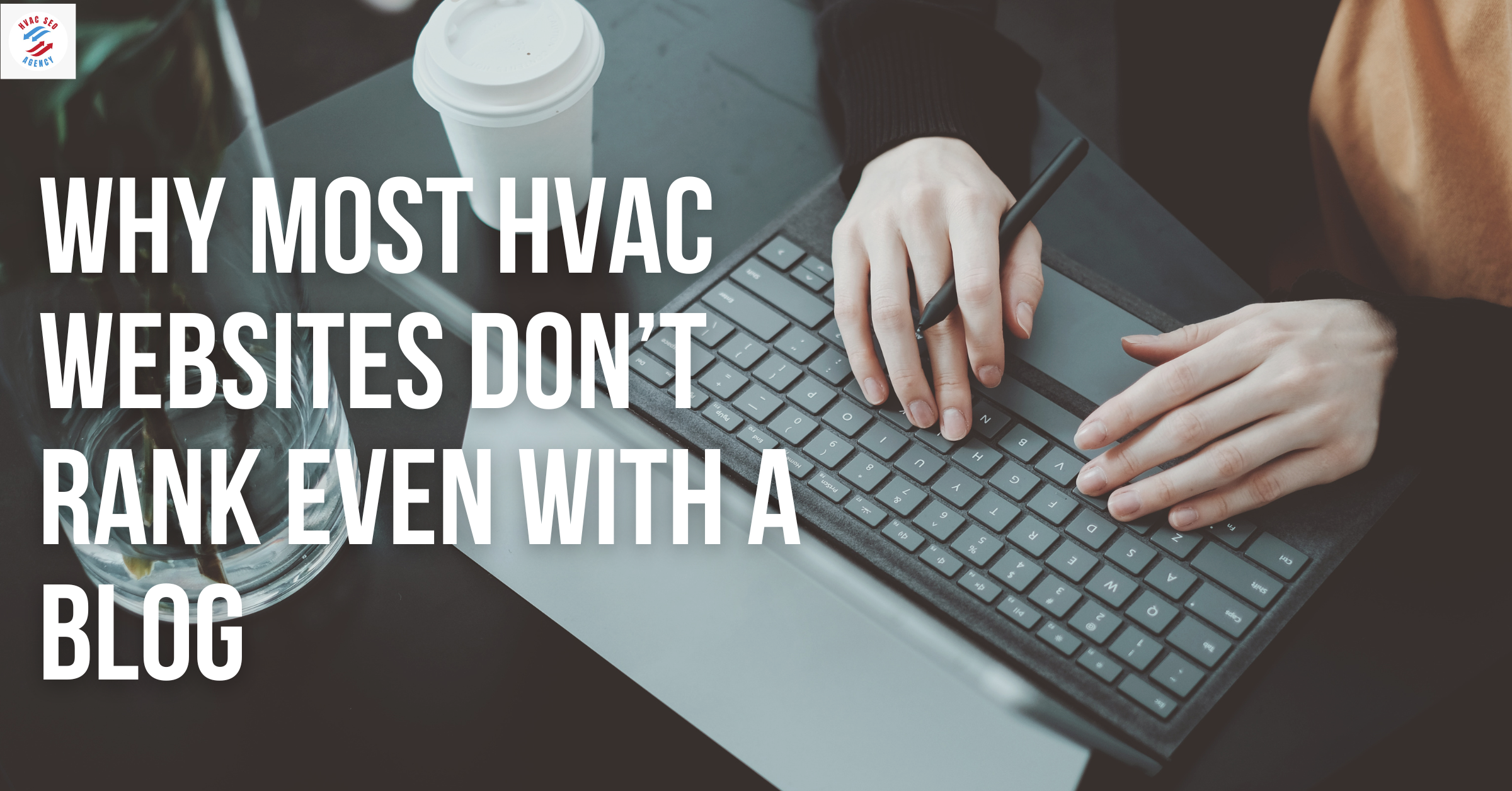The Ultimate HVAC Troubleshooting Guide: Common Issues and Fixes

Why HVAC Troubleshooting Matters for Every Homeowner
When your HVAC system stops working, the immediate response is often frustration. Whether it's an air conditioner that won’t cool or a furnace that blows cold air, HVAC issues can disrupt comfort and lead to high energy bills. Knowing how to troubleshoot these common HVAC problems can save time and money, while also helping you determine when it's best to call in a professional.
For expert assistance, the Best HVAC SEO Agency ensures that HVAC businesses connect with homeowners and business owners who need reliable service. This HVAC troubleshooting guide is designed to help diagnose, fix, and prevent frequent system malfunctions. Many problems, such as clogged filters or thermostat misconfigurations, can be fixed without professional help. However, for complex issues like refrigerant leaks or electrical failures, it’s essential to trust a certified HVAC professional. If you're an HVAC business owner looking to grow your customer base, understanding how to rank higher and get more leads is essential. Implementing HVAC SEO strategies, optimizing your Google My Business profile, and using targeted digital marketing techniques can significantly improve your online visibility and lead generation.
How HVAC Issues Impact Energy Efficiency and Costs
A malfunctioning HVAC system doesn’t just affect indoor comfort—it also increases energy consumption. According to the U.S. Department of Energy, HVAC systems account for nearly 50% of a home’s energy use. A poorly maintained or faulty system can cause energy waste, leading to higher electricity bills.
Table: How Common HVAC Problems Affect Energy Efficiency
Ignoring small common HVAC problems often leads to larger system failures. For example, a dirty air filter can cause airflow restrictions, making the system work harder and shortening its lifespan.
What This Guide Covers
This HVAC troubleshooting guide provides step-by-step solutions for:
Air conditioners that won’t cool properly
Furnaces that blow cold air or don’t turn on
Unusual noises and leaks from HVAC systems
Preventative maintenance tips to avoid costly repairs
When to call the Top HVAC Marketing Experts in Houston for reliable services
By the end of this guide, you’ll be equipped with the knowledge to fix minor issues on your own and determine when professional help is necessary.
II. HVAC System Not Turning On: Common Causes & Fixes
Few things are more frustrating than an HVAC system that fails to start when you need it most. This problem can stem from multiple factors, including power supply failures, thermostat misconfigurations, or electrical malfunctions. Below, we break down the most common reasons why HVAC systems won’t turn on and how to fix them.
Graph: Top Reasons Why HVAC Systems Fail to Start
Step-by-Step Troubleshooting Guide
1. Check the Thermostat Settings
One of the most overlooked common HVAC problems is incorrect thermostat settings. Ensure that:
The thermostat is set to heating or cooling mode (depending on the season).
The temperature is set lower than the current indoor temperature (for cooling) or higher (for heating).
The thermostat batteries are working—replace them if necessary.
For smart thermostats, check if the Wi-Fi connection is active.
Pro Tip: If your thermostat is outdated, consider upgrading to a smart thermostat, which can increase energy efficiency by up to 10%.
2. Inspect the Circuit Breaker
A tripped breaker can cut power to your HVAC system. To fix this:
Locate the electrical breaker panel in your home.
Identify the HVAC circuit breaker and see if it's in the “OFF” position.
If tripped, reset it by turning it OFF and then ON.
If the breaker trips again immediately, call a professional this may indicate an electrical short or compressor failure.
3. Verify Power Supply & Safety Switches
HVAC systems have multiple safety switches that prevent operation if a component is out of place:
Furnace Door Switch: If the furnace door is not fully closed, the safety switch will prevent the system from starting.
Float Switch in Condensate Drain Pan: If this switch detects excess water, it will shut off the HVAC unit. Emptying the pan and clearing clogged drain lines can resolve the issue.
Pro Tip: If your HVAC system turns on but immediately shuts down, inspect safety switches and electrical components.
4. Change or Clean the Air Filter
A clogged air filter restricts airflow, causing overheating and preventing the system from starting. To fix this:
Turn off the HVAC system.
Remove the air filter and check if it's covered in dust and debris.
Replace with a new high-efficiency filter if it looks dirty.
Table: How Often Should You Change Your Air Filter?
5. Inspect Electrical Components & Wiring
If the furnace or AC still won’t turn on, check for electrical issues:
Look for burnt wires or loose connections in the HVAC control panel.
If you notice scorch marks or a burnt smell, turn off the system immediately and call a licensed HVAC technician.
Inspect fuses and relays—if they are blown, replace them.
Pro Tip: Avoid DIY electrical repairs unless you're trained in HVAC systems. Electrical faults can be dangerous.
When to Call an HVAC Professional
If none of the above troubleshooting steps resolve the issue, it’s time to contact an expert. Top HVAC Marketing Experts in Tulsa can connect you with reliable technicians who offer fast and affordable repairs.
III. Air Conditioner Not Cooling Properly: Fixing Temperature Issues
A failing air conditioner during peak summer months can be frustrating and costly. If your AC is running but not blowing cold air, there could be several reasons. This section of our HVAC troubleshooting guide will help diagnose common HVAC problems affecting cooling performance and how to fix them.
Common Causes of AC Cooling Failure
Graph: Top Reasons Why Air Conditioners Fail to Cool
1. Thermostat Issues
If your air conditioner is running but not cooling, the first thing to check is the thermostat settings.
Ensure the AC mode is set to "cool" and the temperature is lower than the room temperature.
If your thermostat is placed near heat sources, such as direct sunlight or appliances, it may misread the temperature.
For smart thermostats, reset the Wi-Fi connection if there are communication errors.
Pro Tip: A malfunctioning thermostat can increase cooling costs by up to 10%. Consider upgrading to a programmable thermostat to enhance energy efficiency.
2. Low Refrigerant Levels (Leaks)
If your AC blows warm air, it may indicate a refrigerant leak. Refrigerant is responsible for absorbing heat and cooling the air. Signs of low refrigerant include:
Ice buildup on evaporator coils
Hissing sounds near the refrigerant lines
Weak airflow from vents
DIY Warning: Refrigerant leaks cannot be fixed by homeowners. Only licensed HVAC technicians should handle refrigerant refills due to EPA regulations.
3. Clogged Air Filters & Restricted Airflow
A dirty air filter can block airflow, causing inefficient cooling and overheating. To prevent this:
Replace your air filter every 30-90 days.
Use high-efficiency filters for better performance.
Ensure all air vents are open and not blocked by furniture.
Table: Air Filter Replacement Frequency Based on Home Conditions
4. Dirty Evaporator & Condenser Coils
Evaporator coils inside your AC absorb heat from indoor air.
Condenser coils outside release heat into the atmosphere.
When these coils become covered in dirt and grime, your AC’s cooling efficiency drops significantly.
Solution: Clean the coils using a soft brush, coil cleaner, or compressed air.
5. Blocked Condensate Drain & Water Leaks
A clogged condensate drain line can cause water to accumulate, leading to mold and system shutdowns.
Locate the AC drain line near the indoor unit.
Flush the drain with a mixture of vinegar and warm water to clear clogs.
If your AC has a float switch, check if it has been triggered due to excessive moisture.
Pro Tip: Routine coil and drain cleaning can prevent up to 30% of AC failures.
When to Call a Professional HVAC Technician
If your AC has a refrigerant leak
If the compressor is overheating
If cleaning coils and filters doesn’t restore cooling efficiency
If you need expert HVAC services, consider contacting the Top HVAC Marketing Experts in [City] for professional assistance.
IV. Heating System Problems: Troubleshooting Furnace & Heat Pump Issues
A failing heating system during winter is just as problematic as an AC malfunction in summer. Whether you have a furnace or a heat pump, heating problems can arise due to thermostat failures, fuel supply issues, or clogged components. This section of the HVAC troubleshooting guide covers common heating issues and how to fix them.
Bar Chart: "Most Common Furnace & Heat Pump Issues in U.S. Homes” (Each bar represents different issues like pilot light failures, thermocouple problems, dirty flame sensors, etc.)
1. Furnace Not Producing Heat
If your furnace isn’t heating, check these key factors:
Thermostat Settings: Ensure it's set to “heat” and not “cool.”
Pilot Light or Ignitor Failure: If the pilot light is out, follow the manufacturer’s guide to relight it.
Dirty Flame Sensor: A dirty sensor prevents the burner from igniting. Cleaning it can restore heating efficiency.
Table: Common Furnace Issues & Fixes
2. Heat Pump Not Heating or Cooling Properly
Unlike furnaces, heat pumps provide both heating and cooling. If your heat pump isn’t warming your home, check:
Dirty coils and filters—clean or replace as needed.
Low refrigerant levels—this reduces heating efficiency.
Faulty reversing valve—this controls whether the heat pump is in heating or cooling mode.
Pro Tip: If your heat pump struggles in extreme cold, consider using auxiliary heating or switching to a dual-fuel system.
3. Furnace Blowing Cold Air
A furnace blowing cold air is often due to:
Pilot Light Problems: If the pilot light keeps going out, you may have a faulty thermocouple.
Thermostat Fan Settings: Ensure the fan is set to “Auto” and not “On” (which causes continuous airflow even when the furnace is off).
Clogged Air Filters: Dirty filters restrict airflow, causing overheating and system shutdowns.
Table: Why Is My Furnace Blowing Cold Air?
If your pilot light won’t stay on
If your furnace produces a burning smell
If your heat pump isn’t switching modes
If you experience unexpected energy bill spikes due to heating inefficiency
If your system is more than 10 years old and requires frequent repairs
V. Strange Noises from HVAC System: Diagnosing Sounds & Fixes
Unusual noises from your HVAC system can indicate serious underlying problems. Whether it's a banging, whistling, or grinding sound, these noises signal that a component may be loose, clogged, or in need of repair. Ignoring these signs can lead to costly breakdowns or even complete system failure.
This HVAC troubleshooting guide will help you diagnose the most common HVAC problems related to strange noises and provide solutions to fix them before they worsen.
Chart: Common HVAC Noises and Their Causes
1. Banging or Clanking Noises
A banging or clanking sound coming from your HVAC system often means something inside is loose or broken.
Loose Fan Blade: If the blower fan is unbalanced, it can hit other components, causing a banging noise.
Broken Compressor Parts: If internal parts of the compressor come loose, they can cause loud clanking sounds.
Solution:
Turn off the HVAC system and inspect the blower fan for loose parts.
If the compressor is the issue, contact an HVAC professional compressor repairs require specialized expertise.
2. Hissing or Whistling Sounds
If your HVAC system is producing a hissing or whistling noise, the likely causes are:
Leaking Air Ducts: Small gaps or cracks in ductwork can cause a whistling sound as air escapes.
Refrigerant Leaks: If you hear a high-pitched hissing, your system might have a refrigerant leak, which reduces efficiency and can damage the compressor.
Solution:
For air duct leaks: Seal gaps with HVAC aluminum tape or call a professional for duct repair.
For refrigerant leaks: DO NOT attempt a DIY fix. Call a certified HVAC technician to repair and recharge refrigerant levels.
3. Squealing or Grinding Noises
A squealing sound often indicates issues with the blower motor belt or bearings inside the motor.
Over time, belts can wear out, slip, or break, leading to poor performance.
If you hear a grinding sound, the blower motor bearings may be worn out and require lubrication or replacement.
Solution:
Replace a worn-out blower belt (refer to your HVAC manual for belt specifications).
If bearings are grinding, lubricate them or have a technician replace the motor if necessary.
4. Rattling or Vibrating Noises
A rattling noise inside your HVAC system may be caused by:
Loose screws, panels, or ductwork shaking during operation.
A failing compressor, which often produces a loud vibrating noise before failure.
Solution:
Tighten loose screws and panels around the HVAC unit.
If rattling continues, have a professional inspect the compressor for early signs of failure.
When to Call a Professional HVAC Technician:
If noises persist after basic troubleshooting.
If there are signs of refrigerant leaks or electrical failures.
If the compressor is making loud banging or rattling sounds, indicating internal damage.
For expert HVAC troubleshooting services, contact the Top HVAC Marketing Experts in Dallas to connect with certified professionals.
VI. HVAC Leaks, Poor Airflow & Indoor Air Quality Problems
Your HVAC system plays a key role in maintaining air quality and ventilation. However, problems like water leaks, weak airflow, and high humidity can affect both your comfort and health. These issues often stem from clogged condensate drains, leaky ducts, or dirty air filters.
Graph: How Poor Air Quality Affects Health
1. Water Leaks & Condensation Issues
If you notice water pooling around your HVAC system, this could be due to:
Clogged Condensate Drain Line: Over time, dirt and mold can block the AC’s drain line, causing water backup.
Frozen Evaporator Coils: A frozen coil will start melting, leading to water leakage.
Leaky Air Ducts: If ducts are improperly sealed, moisture buildup can occur, leading to mold growth.
Solution:
Flush the condensate drain line with a vinegar and warm water solution.
Inspect evaporator coils for ice buildup and clean them regularly.
Seal duct leaks with HVAC duct tape or mastic sealant.
Table: Common HVAC Leak Causes & Fixes
2. Weak Airflow & Ventilation Issues
If your HVAC system is running but the airflow feels weak, the most common causes include:
Dirty Air Filters: Clogged filters block airflow, reducing efficiency.
Blocked Vents or Registers: Furniture or debris obstructing vents can weaken circulation.
Leaking or Collapsed Ductwork: Air escaping from damaged ducts leads to uneven airflow.
Solution:
Replace air filters every 30-90 days for better airflow.
Ensure vents are fully open and unobstructed.
If some rooms get less airflow than others, inspect the ductwork for leaks.
Table: How Dirty Air Filters Impact HVAC Performance
3. High Humidity & Musty Smells from HVAC Vents
High indoor humidity and musty odors from HVAC vents are warning signs of poor ventilation or mold growth.
Causes:
Clogged drain lines allowing moisture buildup
Mold growing in ductwork
Malfunctioning dehumidifier
Solution:
Clean drain lines to prevent standing water and mold.
Have ducts professionally cleaned and sealed to eliminate mold and dust.
Use a dehumidifier to maintain humidity levels between 30-50% for comfort.
When to Call a Professional HVAC Technician:
If your HVAC system produces a strong moldy odor.
If airflow remains weak even after filter changes.
If humidity levels are consistently high, leading to discomfort or health risks.
For top-rated HVAC maintenance services, consider reaching out to the Best HVAC SEO Marketing Services for expert troubleshooting and repair solutions.
VII. Preventative Maintenance Tips for HVAC Longevity
Preventative maintenance is the best way to extend the lifespan of your HVAC system, improve energy efficiency, and prevent common HVAC problems before they escalate. A well-maintained HVAC unit runs 20-30% more efficiently, reducing your energy bills and minimizing repair costs.
This HVAC troubleshooting guide covers essential seasonal maintenance tasks to keep your system in optimal condition.
Checklist: Seasonal HVAC Maintenance Guide
1. Change Air Filters Regularly
Dirty air filters restrict airflow, making your HVAC system work harder and consume more energy.
Replace standard air filters every 30-90 days (depending on home conditions).
High-efficiency filters (HEPA) can last up to 6 months but must be checked regularly.
Pro Tip: If you live in a city with high dust or pollution levels, consider upgrading to HEPA filters for better indoor air quality.
Table: Best Air Filters for HVAC Systems
2. Keep Coils & Condensate Drain Lines Clean
Dirty condenser and evaporator coils reduce cooling efficiency by up to 30%.
Clean condenser coils annually using a soft brush and coil cleaner.
Flush the condensate drain line with vinegar to prevent blockages.
Warning: Blocked condensate lines can cause water leaks and mold growth, leading to indoor air quality issues.
3. Inspect & Seal Ductwork for Air Leaks
Leaky ducts cause air loss, making your system work harder to maintain the desired temperature.
Inspect ducts for gaps, holes, or disconnected sections and seal them with HVAC aluminum tape.
Upgrading to insulated ducts can improve efficiency in extreme weather conditions.
Graph: How Leaky Ducts Impact HVAC Efficiency
4. Check & Calibrate the Thermostat
Incorrect thermostat settings can lead to inefficient heating and cooling cycles.
Upgrade to a smart thermostat to improve efficiency and allow remote adjustments.
If your thermostat is placed near direct sunlight or heat sources, relocate it to a central, shaded area for accurate readings.
Pro Tip: Smart thermostats can save up to 10% on annual energy costs by optimizing temperature settings.
5. Schedule Professional HVAC Inspections
A professional HVAC tune-up helps identify early signs of major problems.
Technicians will inspect electrical connections, refrigerant levels, and airflow.
Regular servicing extends your HVAC system’s lifespan by 5-10 years.
If you’re looking for expert HVAC maintenance solutions, consult the Top HVAC Marketing Experts in [City] for reliable and affordable services.
VIII. When to Call a Professional HVAC Technician
While this HVAC troubleshooting guide covers many DIY solutions, some common HVAC problems require expert intervention. Attempting to fix complex HVAC issues without the right skills can lead to further damage and costly repairs.
Graph: HVAC Issues That Require Professional Repair
1. Signs You Need Professional HVAC Repair
If you notice any of the following signs, stop troubleshooting and call an expert:
Your HVAC system keeps tripping the circuit breaker
Strange smells, such as burning or musty odors
Weak airflow, even after changing air filters
Loud banging, hissing, or screeching noises
Sudden spikes in energy bills without increased usage
Pro Tip: If your HVAC system is more than 10 years old, frequent repairs may indicate that it’s time for a replacement.
2. Common HVAC Repairs & Cost Estimates
Table: Average Cost of Common HVAC Repairs in the U.S.
3. Choosing the Right HVAC Technician
When hiring an HVAC professional, consider:
Experience & Certifications – Ensure they are licensed and EPA-certified.
Online Reviews & Reputation – Check Google and Yelp ratings before hiring.
Upfront Pricing & Warranties – Get written estimates and service guarantees.
For expert HVAC services, consider reaching out to the Best HVAC SEO Marketing Services in [City] to connect with top-rated professionals.
When to Replace vs. Repair Your HVAC System
Table: Repair vs. Replacement Decision Guide
FAQs:
1. Why is my HVAC running but not heating or cooling?
If your HVAC system is running but fails to heat or cool, the problem is likely due to:
Low refrigerant levels – A refrigerant leak reduces efficiency and prevents proper temperature control.
Thermostat misconfiguration – Incorrect settings may prevent the system from activating the desired function.
Blocked airflow – Dirty filters or clogged vents restrict proper heating or cooling.
Malfunctioning compressor – A failing compressor struggles to circulate refrigerant effectively.
Solution:
Check and recalibrate the thermostat.
Inspect and replace the air filter if clogged.
If cooling issues persist, call an HVAC technician to check for refrigerant leaks or compressor malfunctions.
2. What should I check first if my HVAC isn’t working?
Before calling a professional, check these basic troubleshooting steps:
Thermostat settings – Ensure it's set to the correct mode (heating or cooling).
Power supply – Inspect the circuit breaker for tripped switches.
Air filter – A clogged filter can cause system failure.
Safety switches – Some systems have shutoff switches that may need resetting.
Quick Fix:
Turn the system off and on.
Check the air filter and replace it if necessary.
Ensure vents are open and unblocked.
If the problem persists, consult an HVAC professional.
3. How do I reset my HVAC system properly?
If your HVAC system is malfunctioning, a reset may help resolve minor electronic glitches.
Step-by-Step Reset Guide:
Turn off the thermostat and set it to "off."
Shut down power to the HVAC unit at the breaker panel.
Wait 5-10 minutes to allow internal components to reset.
Turn the breaker back on and restore thermostat power.
Pro Tip: If resetting doesn’t fix the issue, it may indicate electrical failures or sensor problems that require professional repair.
4. Why does my AC keep tripping the breaker?
An air conditioner that frequently trips the breaker could be due to:
Overloaded circuit – The unit is drawing too much power.
Compressor failure – A damaged compressor pulls excessive electricity.
Electrical short – Faulty wiring or capacitor issues.
Solution:
Reset the breaker once.
If it trips again, do not keep resetting—this can cause electrical fires.
Call a licensed HVAC technician to diagnose and repair the issue.
5. How often should HVAC filters be changed?
The frequency of air filter replacement depends on home conditions and usage.
Recommended Air Filter Change Frequency:
Pro Tip: If you live in an urban area or a high-pollution zone, consider using HEPA filters for better indoor air quality.
Conclusion: Keeping Your HVAC System Efficient & Reliable
Your HVAC system is one of the most critical components of your home, ensuring year-round comfort. Regular maintenance and timely troubleshooting can prevent costly repairs, extend the system’s lifespan, and improve energy efficiency.
Key Takeaways from This HVAC Troubleshooting Guide
Routine maintenance is crucial – Regular filter replacements, coil cleaning, and duct inspections improve efficiency.
Common HVAC problems can be fixed – Many issues like thermostat malfunctions, airflow restrictions, and minor leaks can be addressed without professional help.
Know when to call a professional – Electrical failures, refrigerant leaks, and compressor issues require licensed HVAC technicians.
Energy efficiency matters – Upgrading to smart thermostats, high-efficiency filters, and insulated ducts can lower energy bills by 20-30%.
Why Regular HVAC Maintenance Matters
Extends system lifespan by 5-10 years.
Reduces energy costs by 20-30%.
Prevents expensive emergency repairs.
Improves indoor air quality and ventilation.
Table: Cost Comparison - Regular Maintenance vs. Major Repairs
The HVAC industry is evolving with smarter, more energy-efficient systems. Innovations such as smart thermostats, AI-driven diagnostics, and eco-friendly refrigerants are transforming how homes and businesses manage climate control.
Key Trends in HVAC Efficiency:
Smart thermostats reduce energy use by up to 10% annually.
Ductless mini-split systems improve efficiency and flexibility.
Eco-friendly refrigerants help lower carbon footprints.
As new HVAC technologies emerge, staying informed can help you make cost-effective, energy-efficient upgrades.
Final Call to Action: Get Expert HVAC Assistance Today!
Whether you need emergency HVAC repair, preventative maintenance, or a system upgrade, consulting a reliable HVAC expert can save you time, money, and stress.
For homeowners and business owners looking for trusted HVAC services, reach out to the Best HVAC SEO Marketing Services in [City].
For HVAC businesses looking to boost Google rankings, implementing SEO-driven strategies, optimizing local search visibility, and leveraging high-quality content marketing can drive more traffic and generate consistent leads.
Why Choose Professional HVAC Marketing Experts?
Increase your HVAC business visibility online.
Get more leads and service bookings.
Ensure your HVAC company ranks higher in search results.
Contact the Top HVAC Marketing Experts in [City] today to learn how SEO strategies can help your business grow.


